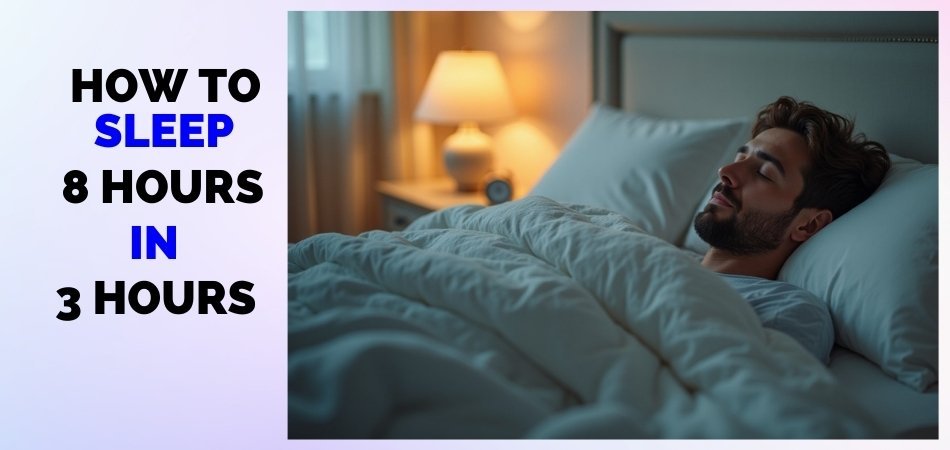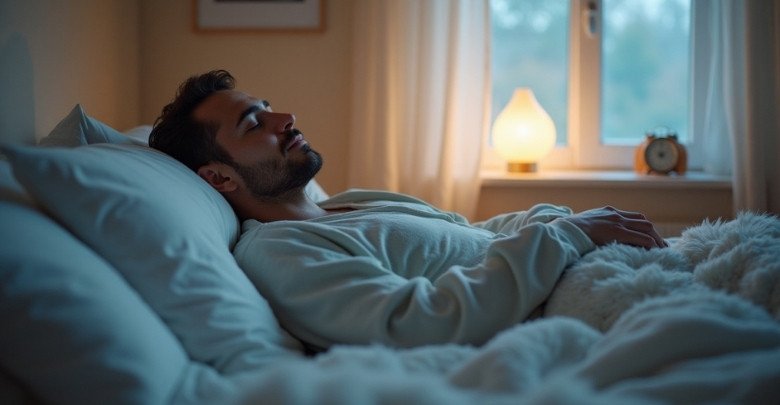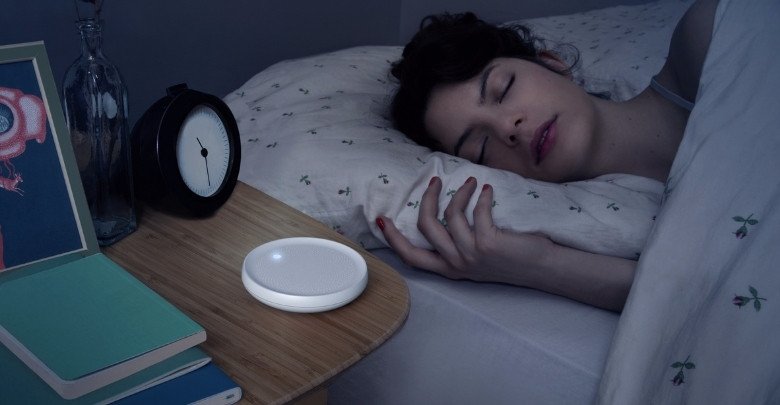What if you could feel well-rested even after sleeping for just a few hours? What if you could save time and still have enough energy for the day? The quality of your sleep is more important than the amount of time you sleep in today’s busy world. You might be asking how to sleep 8 hours in 3 hours.
The truth is, you can’t really turn 3 hours into 8, but you can make your short sleep feel better by improving how you sleep. Using methods like polyphasic sleep and creating a good sleep setup can help you get more rest in less time.
Keep reading to learn how you can feel fresh even with fewer hours of sleep.
How to Sleep 8 Hours in 3 Hours?
To feel like sleeping eight hours in only three, follow short naps, calm surroundings, and peaceful bedtime rituals. Bright lights, cool room temperature, soft music, comfortable pillows, herbal teas, or meditation greatly help restful sleep. Here are a few ways to help your body feel fully rested, even with just a few hours of sleep.

Understanding Sleep and Rest
We all wish we could sleep less but still wake up fresh and full of energy every day. Life can get busy, and sometimes there just isn’t enough time for a full night’s sleep. But did you know your body has smart ways to rest even in a shorter time? Let’s look at how sleep really works and how to feel rested without always needing eight hours.
Sleep Cycles
Your sleep happens in cycles, not just one long stretch from night to morning. Each sleep cycle has different parts, like light sleep, deep sleep, and dreaming (also called REM sleep). One full cycle takes about 90 to 120 minutes to finish. You go through many of these cycles while you sleep at night. Getting full cycles is more important than just the number of hours you sleep.
Polyphasic Sleep
This is when you break your sleep into smaller parts across the day, not just one long sleep. Some people take short naps during the day to feel more rested. It’s not common for everyone, but it can work for some when done right. You need to be careful and follow a pattern so your body gets used to it. Missing naps or sleeping randomly might make you more tired.
Rest vs. Sleep
Rest and sleep aren’t the same, but both help your body and brain recharge. Even if you can’t sleep long, short deep sleep and quiet rest can still help. Good habits like keeping your room dark, quiet, and cool can make sleep better. Avoid using your phone before bed so your brain can relax. A peaceful routine before sleeping helps you fall asleep faster and rest better.
Tips to Maximize Sleep Quality and Rest With Limited Time
Sometimes we don’t get enough hours to sleep, but we still need to wake up feeling fresh. That’s why it’s important to make every minute of sleep count as much as possible. Good sleep habits can help your body rest better in less time. Let’s see how you can do this with simple and easy tips.
Keep It Dark
You can tell when it’s time to sleep by the darkness in your room. Bright lights can confuse your body and make falling asleep harder. Try using thick curtains or an eye mask to block out the light. If you need a night light, use a dim one that’s not too bright. Darkness helps your body relax and sleep more deeply.
Set the Right Temperature
Sleeping in a cool room can make you feel more comfortable and fall asleep faster. If it’s too hot or too cold, your sleep might get disturbed. A fan or a light blanket can help control the temperature. Wear light and soft clothes that help your body stay relaxed. Cool air tells your body it’s time to rest.
Cut Down Noise
Loud or sudden sounds can wake you up even if you’re in deep sleep. Try to keep your room quiet or wear earplugs if there’s outside noise. White noise machines or soft music can help block other sounds. Turning off loud electronics also helps your mind calm down. A peaceful room leads to better sleep.
Follow a Routine
Doing the same things before bed every night tells your brain it’s time to sleep. Stop using your phone or watching TV at least two hours before bed. Try reading a book, stretching, or just sitting quietly. A warm bath can also help your muscles relax. These small things can make it easier to fall asleep.
Try Short Naps
If you don’t have time for a full night’s sleep, small naps during the day can really help. Keep naps short—about 20 to 30 minutes—so you don’t wake up feeling sleepy. These naps give your brain a break and help you feel more awake. Try not to nap too close to bedtime. A few smart naps can make a big difference.
Watch What You Eat
Food and drinks can affect how well you sleep. Try not to have coffee, tea, or energy drinks in the evening. Avoid eating too much sugar or heavy food before bed. Drinking lots of water right before sleeping can also wake you up to use the bathroom. A light, healthy dinner helps your body rest better.
Use Helpful Tools
Sometimes, a sleep aid device like Dodow can make your sleep better without much effort. These devices can play relaxing sounds or show soft lights to calm your mind. Some even track your sleep so you know what works best for you. You don’t need anything fancy—just something that helps you relax. Pick one that feels comfortable and easy to use.
Important Considerations for a Good Night’s Sleep
Sleep is super important for staying healthy, feeling fresh, and doing well in school or at any daily activity. Many people don’t sleep well because they forget simple but helpful things. Small changes in your routine can make your sleep much better. Here are some easy tips you can follow:

- A quiet and cool room helps your body relax and fall asleep without trouble or waking up too often. Too much noise or heat can make you feel uncomfortable and disturb your sleep again and again.
- Going to bed at the same time every day helps your body get used to a proper sleep pattern. When your body follows a sleep schedule, it knows when to feel tired and when to wake up fresh.
- Stay away from coffee, soft drinks, or tea in the evening because they can keep you awake for hours. These drinks have stuff that makes your brain feel active even when it should be calming down to sleep.
- Eat a light dinner at night because heavy food can make your stomach feel full and slow your sleep. Greasy or spicy food late at night can upset your body and stop you from sleeping well.
- Don’t look at your phone, computer, or TV at least one hour before bed to help your brain relax. The bright screen light makes it harder for your brain to know it’s bedtime and to get sleepy.
- Do something calm like reading, stretching, or taking a warm bath before sleep to relax your body. These simple things can help you feel peaceful and ready to sleep without any stress or worry.
- Use clean bedsheets and soft pillows because a neat bed makes you feel more relaxed and ready to sleep. If your bed feels fresh and cozy, your body feels safe and sleeps deeper without any problems.
- Try a sleep tool like a white noise machine if small sounds bother you while sleeping. These tools play soft sounds that help block outside noise and make you feel calm and safe in bed.
How Many Hours of Sleep is Optimal for the Human Body?
Sleep is something we all need, but many people don’t think about how much sleep is really enough. Some feel tired even after a long sleep, while others feel fresh with less. It’s not just about hours, but also about how well you sleep. Let’s talk about what really matters when it comes to sleep.
| Age Group | Recommended Sleep Duration |
| Adults (18-64) | 7 to 9 hours |
| Older Adults (65+) | 7 to 8 hours |
| Teenagers (14-17) | 8 to 10 hours |
| Children (6-13) | 9 to 11 hours |
| Preschool (3-5) | 10 to 13 hours |
| Toddlers (1-2) | 11 to 14 hours |
| Infants (4-11 mo) | 12 to 16 hours |
| Newborns (0-3 mo) | 14 to 17 hours |
Recommended Sleep Time
Most healthy adults should sleep for about 7 to 9 hours each night. This helps your brain and body stay strong and active. Sleeping less than 7 hours every night may not be enough for good health. But not everyone needs the exact same amount—some feel fine with more, some with less.
Older Adult Sleep
People over 65 years old usually don’t need as much sleep as younger adults. Around 7 to 8 hours is enough for most of them. Their bodies slow down a little, so they don’t need the same rest time. But even older people should avoid sleeping too little.
Sleep for Teenagers
Teens need more sleep than adults because their bodies and brains are still growing fast. They often need 8 to 10 hours each night to stay healthy. Not sleeping enough can make it harder to focus and stay happy. School and phones often make them stay up too late.
Young Children’s Needs
Kids need even more sleep than teens or adults. Depending on their age, some may need between 10 and 17 hours. Sleep helps them grow, learn, and feel better during the day. Babies and toddlers sleep the most because their bodies are growing super fast.
Sleep Quality Matters
Getting 8 hours in bed doesn’t help if you keep waking up all night. Good sleep means sleeping deeply without many breaks. Waking up fresh and alert is a sign that you had a good sleep. It’s not just how long, but how well you sleep that matters.
Signs You Need More
If you feel tired during the day or can’t focus well, you might not be getting enough sleep. Yawning a lot, feeling cranky, or needing naps all the time are signs as well. Try going to bed earlier and see if you feel better. Your body tells you what it needs.
Do Sleep Aid Devices Really Help?
Yes, sleep aid devices can really help many people sleep better and fall asleep more quickly at night. They don’t fix everything, but they help your body feel calm and ready for sleep. These tools work best when you also follow good sleep habits and a bedtime routine. If you often feel stressed or think too much at night, sleep aid devices can make falling asleep easier.
Some devices show soft lights or play quiet sounds that help you breathe slowly and relax your mind. People often look for the best sleep aid device that is simple to use and feels comfortable at night. When you use the same device every night, your brain learns that it’s time to sleep. These tools may not work for everyone, but many people say they feel more rested and relaxed when using them.
Tips for Using Dodow Sleep Aid to Help You Maintain a Healthy Sleep Schedule
Falling asleep isn’t always easy, especially when your mind keeps running even after a long day. Some people toss and turn for hours and still wake up tired. Dodow is a simple tool that can help your body relax before sleep. Let’s look at how to use it the right way for better rest.

Set Up Properly
Place the Dodow on a flat surface next to your bed, where you can see the light clearly. Make sure the room is dark and quiet, so the light stands out better. You don’t need to hold it—just press the button and let it work. Being comfortable helps you relax faster.
Pick the Right Mode
Dodow has two light modes—8 minutes and 20 minutes, depending on how long you need to fall asleep. Use the 8-minute mode if you’re a little restless or already feeling sleepy. For a busy mind or stress, the 20-minute mode is better. Many users have seen the effectiveness of Dodow sleep aid in helping them relax faster and fall asleep more easily. Try both modes to find what helps you sleep best.
Breathe With the Light
The blue light slowly grows and shrinks—this helps guide your breathing. Inhale when the light expands and exhale when it shrinks. Keep your breathing slow and steady, matching the light. This calms your body and slows your thoughts.
Use It Every Night
Using Dodow once in a while won’t help much. Try to use it every night so your body gets used to the routine. Over time, you’ll fall asleep faster even without it. Regular use makes the habit stronger and more helpful.
Avoid Distractions
Before you start using Dodow, turn off your phone, TV, or anything else that can distract you. Bright screens and loud sounds can make it hard to relax. A quiet and dark space works best with Dodow. Keeping your focus on the light helps your brain settle down.
Don’t Try Too Hard
If you focus too much on falling asleep fast, it might actually keep you awake. Just follow the light and let your breathing do the work. Don’t worry about the time or if you’re doing it right. The more relaxed you are, the better it works.
Track Your Progress
Notice how you feel in the morning after using Dodow for a few days. If you feel more rested and alert, that’s a good sign it’s working. Some people take time to adjust, and that’s totally normal. Give it a week or two to see full results.
Frequently Asked Questions
Getting full rest in a short time seems impossible, but many people still look for smart ways to feel refreshed. While you can’t replace sleep completely, you can try tricks to rest better. Here are some common questions with easy answers.
Can Breathing Exercises Help You Sleep Faster?
Yes, slow breathing helps calm your body and mind, making it easier to fall asleep quickly. Try deep breathing with short holds, or follow a light pattern like the Dodow device. This can relax your muscles and reduce racing thoughts.
What is Sleep Compression and is it Safe?
Sleep compression means shortening sleep time while trying to improve quality. It’s sometimes used with sleep training or specific schedules. It can help temporarily, but it isn’t safe for long-term use. Always watch how your body reacts to less sleep.
Does Meditation Improve Sleep Quality?
Yes, meditation can help clear your thoughts and relax your body before bedtime. It slows down your heart rate and lowers stress. Even five to ten minutes before sleep can improve how quickly and deeply you rest at night.
How Can Sound or Music Help With Sleep?
Soft sounds, like white noise or calming music, help block out distracting noises. They create a peaceful sleep environment and signal your brain it’s time to relax. Use playlists, apps, or devices that play gentle tones or nature sounds.
Can Power Naps Replace Lost Sleep?
Power naps help increase energy, but can’t fully replace deep night sleep. A 20–30 minute nap during the day refreshes your mind and body. They’re great for short-term tiredness, but not a full fix for missing nighttime sleep.
Is It Okay to Sleep in Short Bursts?
Sleeping in short bursts, like polyphasic sleep, can work for some people with practice. It takes time for the body to adjust. It’s not for everyone, and skipping full sleep often causes tiredness or low focus during the day.
Do Natural Supplements Help With Quick Sleep?
Yes, some natural sleep aids like melatonin or magnesium can help you fall asleep faster. But they don’t replace deep, full sleep. Always use them carefully and talk to an adult or doctor before trying anything new regularly.
What’s the Role of Circadian Rhythm in Sleep Efficiency?
Your body’s natural clock controls when you feel sleepy or awake. Sleeping in sync with your rhythm helps you fall asleep faster and feel more refreshed. Disrupting it often makes even a long sleep feel tiring and unhelpful.
Wrap Up
Getting good sleep in less time is not magic—it’s about doing the right things before you go to bed. You can’t really sleep for three hours and get the same rest as eight, but you can feel fresher by sleeping better. Learning how to sleep 8 hours in 3 hours means focusing on how well you sleep, not just how long.
Things like short naps, quiet rooms, soft lights, and calm breathing can really help. Using tools like Dodow and keeping a daily sleep routine also makes a big difference. With simple habits, you can feel better even with less sleep.






